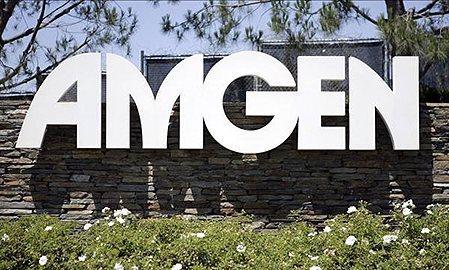Amgen’s cholesterol-lowering PCSK9 drug Repatha (evolocumab) reduced the risk of major cardiovascular problems by half, according to new data presented at the American College of Cardiology (ACC) meeting in San Diego. When the drugmaker analyzed data from 4,500 patients — who stayed on the treatment for nearly a year after completing earlier trials — it found that .95% of patients taking evolocumab had a rate of cardiovascular incident compared to 2.18% on the placebo, Reuters reported Sunday.
New outcomes data, also presented at the ACC meeting, for AstraZeneca’s heart drug Brilinta showed it reduced the risk of heart attack and subsequent stroke. Patients are currently prescribed Brilinta and aspirin for a year after they have had a heart attack, according to Bloomberg News. But in this latest trial, patients who took the drug for an average of 33 months saw a 15% reduction in serious cardiovascular events. AstraZeneca believes Brilinta will rake in annual sales of $3.5 billion by 2023.
Endo pulled out of the Salix bidding war today after Valeant upped the ante to $11 billion, or $173 per share, to buy the drugmaker. Valeant raised its offer by roughly 9% to acquire the drugmaker, which is known for its gastrointestinal portfolio, in an all-cash deal. Endo had submitted an $11.2 billion proposal to Salix, the majority of which was in stock, according to the New York Times.
FDA broadened the use of Actavis’s bipolar drug Saphris on Friday, permitting its use in children aged 10 years old to 17 years old. PharmaTimes reported that Saphris is now the only atypical antipsychotic treatment option with a cherry-flavored sublingual formulation. Saphris is approved for use in patients with bipolar 1 disorder.
ICYMI: FDA cancelled an advisory meeting for Merck’s surgery injection, sugammadex, according to the drugmaker, which said the agency intends to investigate patient hypersensitivity to the drug by looking into sites involved in the study, the Wall Street Journal reported Friday. Sugammadex is a reversal agent for muscle relaxers used during surgery. Merck obtained the rights to the experimental treatment when it acquired Schering-Plough. The experimental treatment was rejected by the FDA seven years ago due to allergy concerns.








